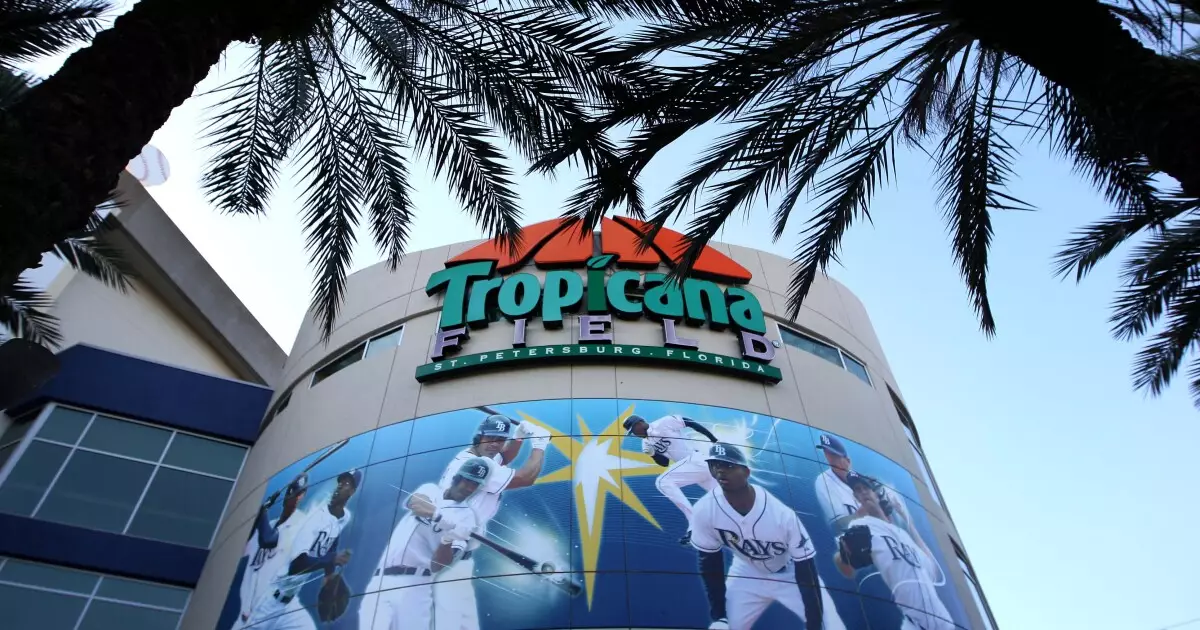Pinellas County and the Tampa Bay Rays: A Fractured Relationship Amid Financing Woes

The ongoing saga between the Pinellas County Commission and the Tampa Bay Rays has reached new heights of tension, highlighting a complex relationship fraught with financial complications and local sentiment. As the Rays push for a financing deal critical to building a new stadium, the commission recently opted to delay a crucial vote on $312 million in bond financing that could facilitate this ambitious project. The resulting friction raises questions about the long-term viability of Major League Baseball in the area and the implications for community engagement and economic development.
In a letter to the commission, the Rays emphasized the importance of securing the bond financing swiftly, warning that failure to secure a 2028 delivery date for the new ballpark would lead to increased costs in subsequent years—costs that the team insists it cannot absorb on its own. The bond vote, initially intended to pave the way for a new stadium to replace Tropicana Field, was postponed as local commissioners grapple with broader concerns in the wake of recent hurricanes. Commissioner Chris Sherer characterized the situation as insensitive, as the county continues to recover from the devastating impacts of natural disasters. This raises the question: what role should a professional sports team play in the midst of a community’s recovery?
The financial implications of the proposed stadium have come under scrutiny as opinions among county commissioners diverge markedly. While some, like Commissioner Kathleen Peters, believe that the economic return from the stadium could help maintain tax levels, others, including Vince Nowicki, question the wisdom of allocating hotel tax revenue to a project that seems to resonate with a small fraction of the local tourism market. A survey revealed that only 3% of visitors to the area attended a Rays game, leading to skepticism over the potential economic benefits of investing in the stadium. The debate underscores a persistent challenge for local governments: balancing the priorities of public investment while gauging the tangible community benefits of such projects.
Community Relations in Flux
Several commissioners criticized the Rays for what they perceived as a lack of corporate responsibility, especially in light of the recent natural disasters that affected the region. The Rays, having a longstanding need for a new stadium, face the difficult task of convincing both the public and local officials of their commitment to being responsible corporate citizens. Amid the accusations, questions arise about the franchise’s engagement or lack thereof with the community it represents. Meaningful partnerships between the team and local authorities are essential in rebuilding trust, particularly when the community is in crisis.
The Broader MLB Landscape
The Rays’ struggles are not isolated; they reflect a wider trend in Major League Baseball where franchises frequently seek new stadiums, often requiring significant financial investment from local and state governments. The Tampa-St. Petersburg region, boasting the 13th largest television market in the United States, remains attractive for MLB, but the demographics of local support are shifting. With growing pushback from community stakeholders and escalating opposition to public funding for sports facilities, the league will need to reconsider strategies that foster stronger relationships with local municipalities.
As the Tampa Bay Rays and the Pinellas County Commission stand at a crossroads, the path forward remains uncertain. Future negotiations will likely dictate not only the fate of a new stadium but also the future of baseball in the region. An unresolved tension between the need for public investment and residents’ reluctance to finance new stadiums without demonstrable benefits may lead to a recalibration of local priorities. Ultimately, striking a balance between economic realities, community sentiment, and corporate expectations will require a concerted effort to foster transparency and mutual understanding among all stakeholders.
As the December 17 meeting approaches, it serves as a critical juncture—not only for the Rays but also for the community that houses them. The stakes have never been higher, and how the situation evolves could serve as a bellwether for similar disputes across the nation.





